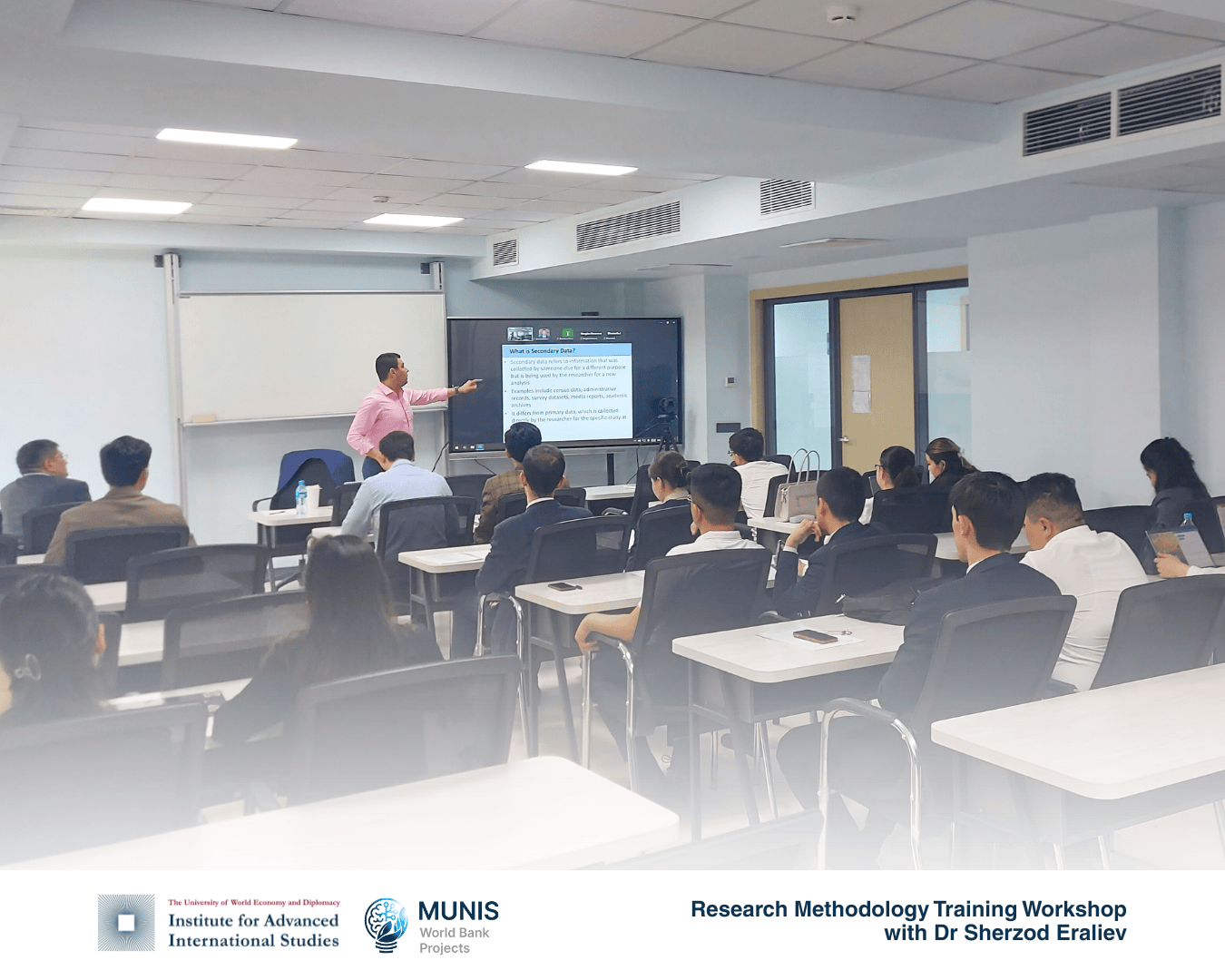
On 11–12 April 2025, the Institute for Advanced International Studies (IAIS) at the University of World Economy and Diplomacy successfully hosted a two-day Research Methodology Training Workshop, delivered under the MUNIS Public Research Institutes Modernization (PRIM) grant of the World Bank. This flagship event, a cornerstone of IAIS’s institutional modernization plan “Building Institutional Capacity for Sustainable Futures: A Pathway to Competitiveness in Central Asia and Beyond”, convened scholars, early-career researchers, faculty and students to refine the tools essential for high-impact policy research.
Leading the workshop was Dr Sherzod Eraliev, Senior Researcher at Lund University, whose expertise in International Politics and Migration Studies has earned publication in top-tier SCOPUS and Web of Science journals. Across two days, Dr Eraliev delivered in-depth sessions on both qualitative and quantitative methodologies, drawing participants into rigorous debates on best practices in document analysis and statistical modelling.
Day 1 – Document Analysis in International Relations. The first day immersed attendees in qualitative research techniques. Through close readings of policy texts, diplomatic communiqués and treaty archives, participants mastered content and discourse analysis, theoretical framing and the art of constructing compelling narratives from primary sources. Interactive group exercises challenged teams to dissect real-world documents and present comparative interpretations.
Day 2 – Quantitative Methodologies for Policy Research. On 12 April, the focus shifted to quantitative approaches. Sessions covered survey design, hypothesis testing and data visualisation using SPSS and Stata. Attendees practised crafting clear research questions, conducting basic statistical analyses and translating numerical findings into policy recommendations. A dedicated segment on data ethics emphasised responsible handling of sensitive information within Uzbekistan’s reform context.
Concluding the workshop, researchers showcased the introductory sections of their manuscripts. Peer and expert feedback, facilitated by Dr Eraliev and the project’s international consultant Prof Timur Dadabaev, provided constructive critiques to sharpen research questions and enhance methodological rigor. Many participants remarked on the value of immediate, hands-on guidance in refining their work.
This workshop directly advances IAIS’s goal to cultivate a robust pipeline of scholarly talent and strengthen evidence-based decision-making in Uzbekistan’s national innovation system. By integrating advanced research methods with publication strategy — mirroring the recent two-day masterclass on journal submissions — IAIS is laying the groundwork for sustained academic excellence and greater international visibility.
Building on this success, IAIS plans to roll out further specialized trainings later this year, including modules on policy communications and stakeholder engagement, all under the overarching MUNIS modernization framework.
As Dr Eraliev observed in the conclusion, “Empowering our researchers with cutting-edge methodologies is vital for transforming analytical insights into actionable policy, and for positioning IAIS as a leading think-tank in Central Asia”.